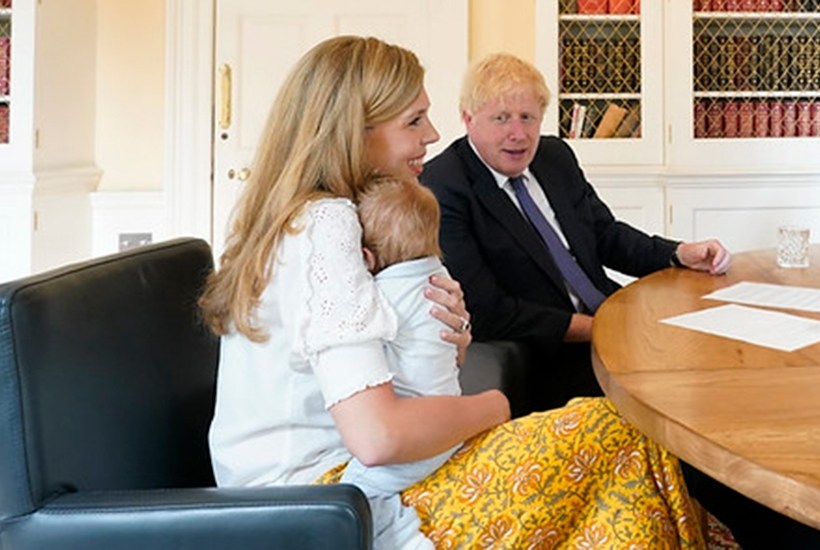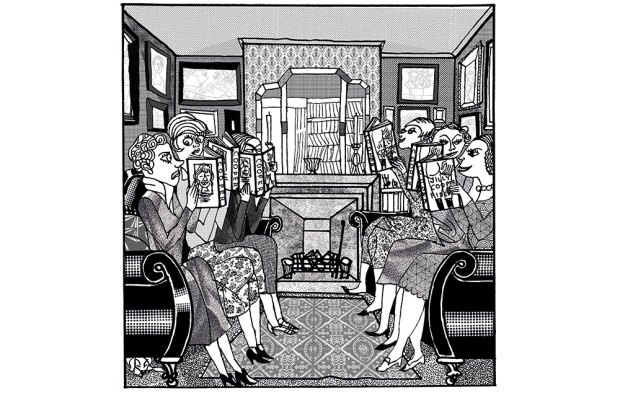Has Boris Johnson only just discovered the ruinous cost of childcare in this country? He has, allegedly, been seeking a rich donor to pay for a nanny for his one-year-old son Wilfred. What’s surprising is not that the Prime Minister has apparently told friends he needs £300,000 a year to keep on top of his outgoings (life gets expensive when you have multiple dependents and properties), but that he has only now realised the cost of finding someone to look after his son. And how even a dual-income couple will struggle. Especially in London.
I should know: I have been paying for full-time childcare for almost 14 years. For the most part, I have been in denial about the crippling cost. I had never totted up how much I have spent over the years, knowing that the grand total would be far too depressing. After all, I can’t do my job without childcare so I’ve just had to suck it up. Unlike millions of other mothers, I earn enough to avoid the miserable prospect of working purely to pay the nanny.
But after reading of the Prime Minister’s financial travails, I decided it was time for a back-of-the-envelope calculation of how much it has cost me over time. The answer? More than £500,000 — and counting. Consider that this came from taxed income, and you get some sense of the amount women have to earn in order to ‘have it all’ (i.e. children and a career).
At that sum – twice the average house price — you might think I’d recruited an army of Norland nannies and, before them, a retinue of maternity nurses. Not a bit of it. I never had any overnight help when my children were really young. But over the years, I’ve tried almost everything else: nurseries, pre-schools, au pairs. I quickly discovered that if you have more than one child, work full-time and have little to no family back-up, nurseries just don’t stack up. On average, places cost £13,200 a year. Times that by two; add extra for early drop-offs and late pick-ups etc, and nurseries are a non-starter.
Coronavirus only underlined the disadvantages. Every time a toddler coughs or has a slight temperature — which is often —entire nursery ‘bubbles’ are sent home until everyone gets the all-clear, which can take days. For parents who do not have extremely understanding employers, it is impractical.
Registered childminders, who can look after up to six children under the age of eight in their own homes, can be more affordable but are not easy to find. This leaves nannies — average salary around £35,000 — who come with all the paperwork and responsibilities associated with having an employee. It means processing payslips, National Insurance contributions and setting up pension schemes, none of which is a pleasure, but for many overstretched working parents, it is the price of keeping the show on the road.
And what a price: the UK now has the highest childcare costs in the developed world, at least as a percentage of women’s earnings, according to the Organisation for Economic Co-operation and Development. Childcare gobbles up half of the average mum’s salary here. In the US, Canada, Ireland and Switzerland, it’s a third. In Italy, subsidies and tax relief cover it all. No country places higher financial obstacles in front of its working mothers than Britain.
Carrie Symonds is paid £70,000 a year doing public relations for the Aspinall Foundation. After tax, she might just be able to afford a nanny, assuming she has very few other overheads. But most women earn less than half this, which perhaps explains why one in five parents leave their jobs entirely, finding childcare hopelessly unafford-able. Almost two thirds reduce their working hours. This is an outrage.
Ministers harp on about the importance of representation of women on boards, and strive to close the gender pay gap (now vanishingly small for women born after 1970), while ignoring the devastating tax on motherhood. It is a glaring inequality that makes a nonsense of so much other good work.
Many new mothers in their twenties and thirties give up work very reluctantly, assuming they’ll be able to return. But by the time they are ready to go back, they have lost confidence and skills and cannot command high enough salaries to justify leaving their children with someone else. It makes no economic sense.
Years of tinkering — subsidies, tax credits and voucher schemes — has done very little to improve the picture, and Brexit has only made the situation worse. As tens of thousands of working parents are discovering to their dismay, it has signalled the end of the traditional au pair. The time-honoured cultural exchange programme under which girls from overseas would come to the UK to stay with a family to improve their English, with free board, lodging and £90 a week pocket money in return for doing 25 hours a week of childcare, has been destroyed. These young women now need visas — so are seeking adventure elsewhere. The system was a lifeline for many working families.
For now, Johnson only has one baby to worry about. He could do a lot worse than apply for a full-time place for little Wilf at the House of Commons nursery, rated ‘Good’ by Ofsted, and brilliantly convenient. This would set him and Carrie back a mere £1,278 a month. For a few extra quid, the lad could even stay late during parliamentary sittings, with the facility open until 10.30 p.m. on a Monday. Good luck to any other parent trying to find similar value in London.
However, if the Prime Minister and his fiancée have a second child, they might discover that even the Commons nursery will no longer be such an affordable option. If Johnson’s purported quest to find a wealthy benefactor to sponsor Wilf’s nanny hits the buffers, perhaps he could talk to Chancellor Rishi Sunak about making childcare tax deductible. The prospect of running up a £500,000 bill like mine over the next ten years might just concentrate his mind.
Got something to add? Join the discussion and comment below.
Get 10 issues for just $10
Subscribe to The Spectator Australia today for the next 10 magazine issues, plus full online access, for just $10.
You might disagree with half of it, but you’ll enjoy reading all of it. Try your first month for free, then just $2 a week for the remainder of your first year.














Comments
Don't miss out
Join the conversation with other Spectator Australia readers. Subscribe to leave a comment.
SUBSCRIBEAlready a subscriber? Log in